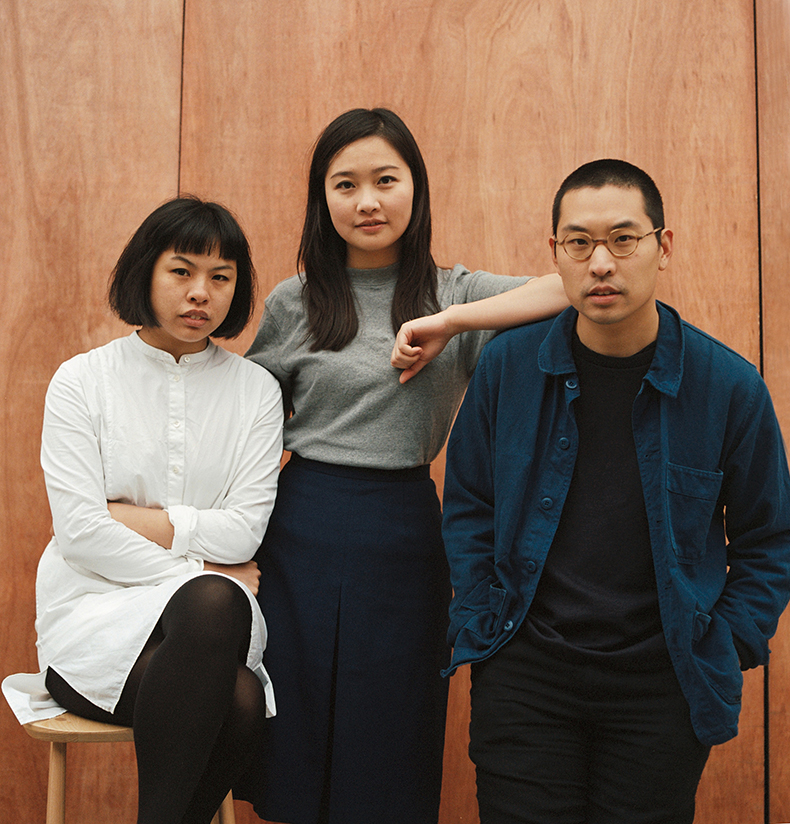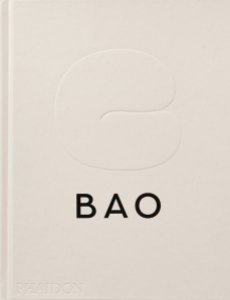While many artists – from Damien Hirst to David Shrigley – have opened restaurants, the results are rarely considered to be art, no matter how much care is taken over the interiors. It’s a different story for Erchen Chang, Shing Tat Chung and Wai Ting Chung, the London-based trio who founded the Bao restaurants. They met at the Slade School of Fine Art and, while Slade is not known as a finishing school for the capital’s restaurateurs, it does seem to have fostered an open-minded outlook. As Chang, the creative director, says, ‘Before going to art school, you constantly question what you are going to do when you study art.’ Luckily, her mother intervened. ‘That’s why you are going to art school,’ she said, ‘you’ll find out what you’re going to do.’
The answer didn’t immediately present itself. When Chang finished at Slade, she returned to Taiwan, where she was born, and invited Shing Tat, now her husband, and his sister Wai Ting to visit her. They went on a road trip to Yilan in the north of the country and stopped at a famous bao place which limited the number of bao to 15 per person. Chang did not see how anyone could want to buy 15 pork steamed buns until she tasted them. ‘They were soft like clouds, they disappeared in your mouth. That’s when we sat and thought we want to do pillowy soft buns and we want to do this in London,’ she says. Buns alone are not, however, the stuff of an art project.

Erchen Chang, Shing Tat Chung and Wai Ting Chung. Photo: Carol Sachs
When they returned to England, they started developing recipes together. It was a process of tweaking ingredients and trying endless variations to find the right one. But at the heart of everything they do is the concept of the Lonely Man. The Lonely Man started as an artwork, created by Chang while she was at Slade. ‘The piece is about five lonely men, all dressed up in oversize suits who come to a riverbed,’ she explains. ‘They look like they are looking for themselves, but they all end up at the same place.’ For Chang, the Bao restaurants are an alternative to the riverbed. Here, the Lonely Men, products of the 21st century who are lost within metropolitan life, can find a sort of refuge and perhaps reconnect with themselves. ‘We still refer back to the Lonely Man, what would he like to eat, how would he like to relax and what is the digital world he will be entering,’ says Chang. This is the Lonely Man’s life that shapes everything that takes place within Bao’s universe.
Even during the pandemic, when the restaurants were shut and they had to develop something that could be delivered, the Lonely Man led the way. ‘We thought about how the Lonely Man waits for deliveries at home and how he would eat in front of a TV and how that experience should be ceremonial. You shouldn’t feel ashamed, you should feel good about this,’ says Chang. The result was Rice Error, a selection of bento boxes filled with rice and traditional Taiwanese flavours that were some of the most delicious food and beautiful packaging to come out of that period.

The BAO Noodle Shop, Redchurch St, London. Photo: Pelle Crépin
The identity of the Lonely Man has once again been at the forefront of Chang’s mind as she and the team put together their first cookbook. Published by Phaidon, BAO is a collection of their recipes as well as a meditation on what has come together to create this group of restaurants, or what Chang calls ‘the prophecy of the Lonely Man’.

BAO, published by Phaidon
But the Lonely Man is not the only artistic influence. Chang referred to Edward Hopper’s Nighthawks when she was working on the now – sadly – closed Bao Fitz in Fitzrovia. The posters on the walls of Bao Borough are homages to the posters of grill joints in Asia. Chang writes in the book, ‘We pictured the Lonely Man disappearing into the lively ambience, and even designed a peep window on the way down to the cloakroom inspired by one in the film Paris, Texas. Through the window, he can glimpse drunk parties singing in the karaoke room.’
The influence of film is never far from the restaurants. The Japanese filmmaker Yasujiro Ozu is particularly important, shaping even the plates at Bao Soho. ‘We call it the Ozu plate because it’s got a thick stem and emulates how Ozu’s camera is frequently held at the same level as bottles, crockery and cutlery,’ says Chang. ‘We wanted to create a plate that felt like it floated off the table casting a shadow. You feel that your food is presented pristinely to you.’ As with all created worlds, it’s the detail that carries them off convincingly. With the Bao restaurants Chang, her husband and her sister-in-law have created a window on to a world that started at Slade – an evolution of an art project that was never part of the life plan, but somehow turned out to be more realistic than anyone else’s work at the school.
BAO by Erchen Chang, Shing Tat Chung and Wai Ting Chung is published by Phaidon.














![Masterpiece [Re]discovery 2022. Photo: Ben Fisher Photography, courtesy of Masterpiece London](http://zephr.apollo-magazine.com/wp-content/uploads/2022/07/MPL2022_4263.jpg)
‘Like landscape, his objects seem to breathe’: Gordon Baldwin (1932–2025)